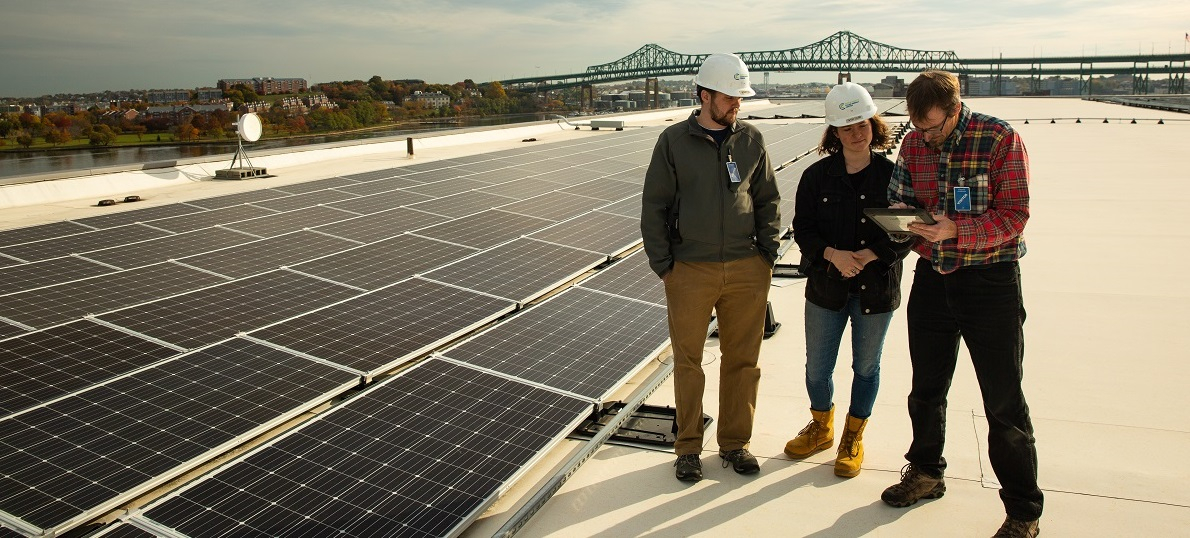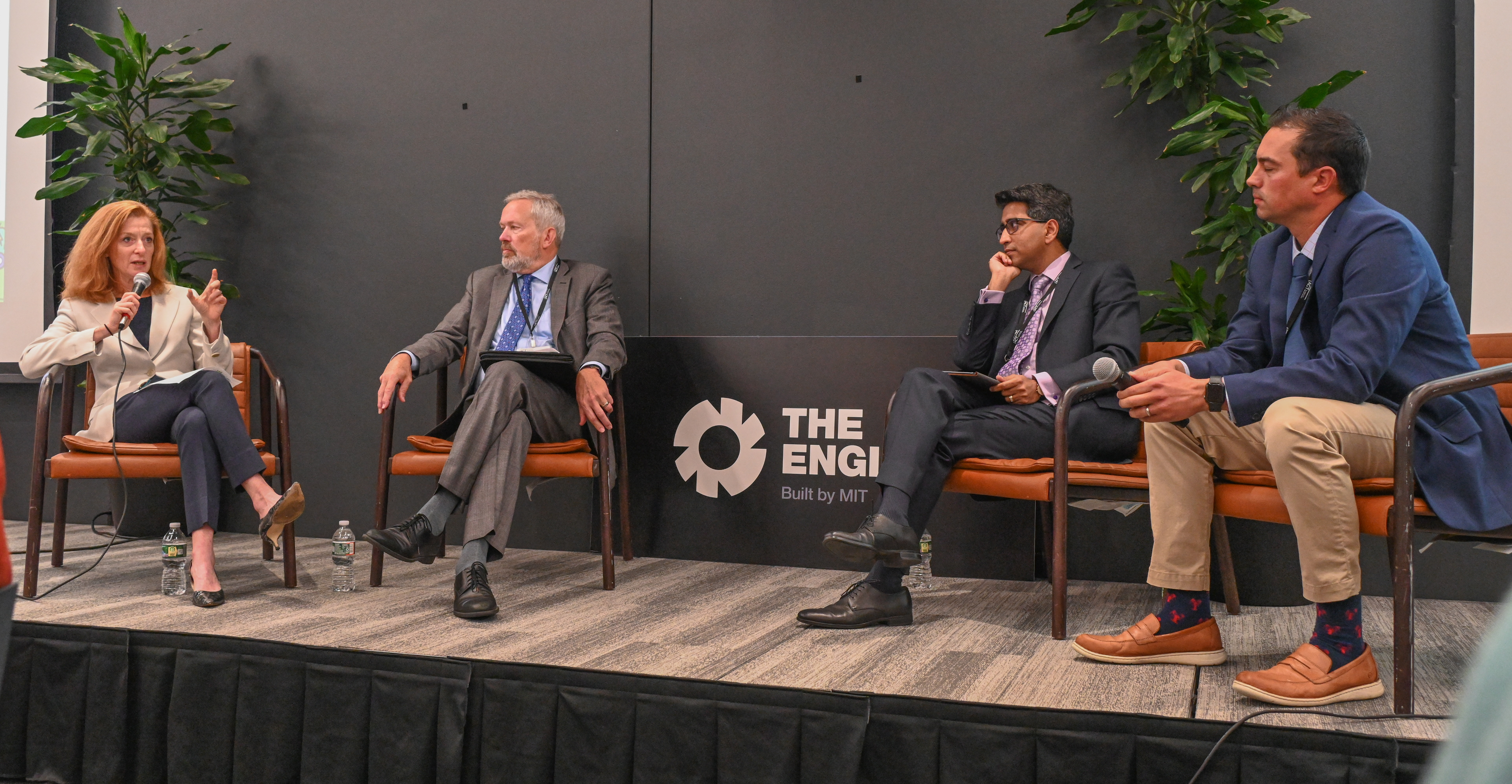
MassCEC is undertaking cutting-edge work to modernize our electric grid to support our clean energy needs.
MassCEC / Net Zero Grid / Grid Modernization and Infrastructure Planning
"Transitioning to the Future Grid in Massachusetts" Event Series

MassCEC, in collaboration with ACT, held the 2025 edition of the Future Grid Event Series. Building off the successful 2024 Transitioning to the Future Grid Event Series, this 2025 edition of the Future Grid Event Series explored critical electric grid topics, centering conversation around the context of the Commonwealth’s energy future. This year’s Future Grid Event Series featured convenings on:
- Balancing Data Center Energy Use with Climate Goals (May 21 at Foley Hoag)
- An Equitable Distributed Energy Future (June 26 at UMass Lowell)
- Grid-edge flexibility (October 3rd at Federal Reserve Bank of Boston)
Also see:
Grid Research and Innovation
MassCEC supports collaborations between Massachusetts grid-owners, operators, startups, and researchers that help the Commonwealth meet the mandates of the Global Warming Solutions Act. Better integrating renewable energy sources and protecting the grid from extreme weather events are examples of the topics addressed.

Contact Us
Are you a grid-related company or organization with an interest in Massachusetts? MassCEC’s Net Zero Grid Team would like to meet you!
Developing a Grid Services & Distributed Energy Resources (DERs) Compensation Method

MassCEC led the Grid Services Study, convening National Grid, Eversource, Unitil, the MA Department of Energy Resources, and the MA Attorney General’s Office, to explore new ways to use DERs to support the local electric grid.
- Using DERs in innovative ways can improve energy affordability by decreasing grid investment, enhancing reliability, and supporting prudent grid planning – all by tapping into resources already deployed for decarbonization.
- DERs play a critical role in the grid by providing a range of possible services, such as capacity relief, infrastructure deferral and avoidance, and voltage support.
- Untapped opportunities already exist to connect and use DERs as flexible resources to respond to location-specific grid needs. However, for DERs to provide value to the local (distribution) grid, we must determine the appropriate, effective level of compensation for DERs providing grid services.
Distributed Energy Resources Dispatch Study
Project Background
The Commonwealth’s path to Net Zero by 2050 requires significant electrification of the transportation and building sectors accompanied by large-scale deployment of Distributed Energy Resources (DERs). As a result, the Electric Distribution Companies (EDCs) must rapidly expand and upgrade the distribution grid to accommodate numerous new loads and distributed sources of electricity generation. MassCEC’s Net Zero Grid Distribution Planning Lab sought to quantify the approximate cost of this expansion and upgrade, while identifying promising opportunities to limit that cost. Building on this collaboration with the EDCs, MassCEC now seeks to understand how existing and future customer-owned DERs on the distribution grid can provide services that help reduce the overall cost of the energy transition.
About DER Dispatch Study
In September 2022, MassCEC released a Request for Proposals (RFP) for its Value of Distributed Energy Resources for Distribution System Grid Services study and selected Baringa Partners LLP to lead the project in December 2022. The motivation for this study was to explore grid services as a tool that can help reduce the overall cost of the energy transition.
The resulting report assesses the potential value of DERs to the distribution grid by creating an integrated set of frameworks to explore the provision of grid services by DERs. This report is a starting place for EDCs, policy makers, and DER stakeholders to understand how to value DERs, a foundational step in developing a statewide solution for expanded utilization of DERs as grid resources.
Net Zero Grid Planning Lab

To accelerate the planning process in Massachusetts while exploring ways to reduce the costs of transitioning to a net zero grid, MassCEC engaged technical consultants and software startups through the NZG Planning Lab. Through first-of-its-kind analysis and innovative software tools, these experts are assessing current distribution system barriers and opportunities, conducting load forecasts based on decarbonization scenarios, and demonstrating novel distribution system planning tools, protocols, and emerging technologies that will further grid decarbonization goals in a cost-effective manner.
MassCEC / Net Zero Grid / Grid Modernization and Infrastructure Planning